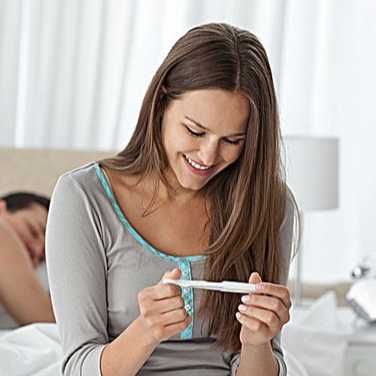Popular science, the principle, and method of HCG detection
First, what is HCG?1. HCG: generally refers to human chorionic gonadotropin, a glycoprotein secreted by the trophoblast cells of the placenta, and is composed of glycoproteins of α and β dimers. It is produced by transitional trophoblast cells and syncytial cells, a glycoprotein hormone with a molecular weight of 36700. The α subunit is similar to the FSH (follicle-stimulating hormone), LH (luteinizing hormone), and TSH (thyroid-stimulating hormone) secreted by the pituitary gland so that they can cross-react with each other. In contrast, the structure of the β subunit is not similar and is unique to HCG, so β-HCG is more specific.
2. The production of HCG: complete HCG is produced by the syncytial trophoblast of the placental chorion, and its main function is to stimulate the corpus luteum, which is conducive to the continuous secretion of estrogen and progesterone to promote the formation of uterine decidua and make the placenta grow and mature. Human chorionic gonadotropin secretion begins 10-14 days after conception. HCG levels in serum and urine can rise rapidly, increasing rapidly in the first eight weeks of pregnancy to maintain pregnancy. After about eight weeks of gestation, HCG gradually declines until it reaches relative stability at about 20 weeks and remains until the end of pregnancy.

Second, the examination method of HCG
1. Serum β-HCG, using Roche Cobase601 automatic immunoassay analyzer, electrochemiluminescence method, quantitative detection of serum β-HCG results. The reference value of serum β-HCG in healthy, non-pregnant, menopausal women: <7 mIU/mL. The absolute value of serum β-HCG varies greatly between pregnant women during different periods of pregnancy and between pregnant women. It is different for each person, not comparable, and can only be compared by itself. The specific situation needs to consult the relevant doctor.
2. Urine HCG, monoclonal antibody colloidal gold test strip detection, qualitative detection of urine HCG results. Generally, six days after conception, the secretion of syncytiotrophoblasts causes an increase in the HCG hormone in the urine. If the usual menstrual period is regular, it is recommended to determine pregnancy in the obvious menopause for more than seven days. Urine HCG concentrations in early pregnancy are low and may be negative, with morning urine HCG levels being highest and close to serum levels, with more accurate results and can be recollected after three days for retesting.
Third, a simple comparison of the blood and urine HCG tests.
1. After a woman becomes pregnant, she will contain HCG in her blood and urine. Urine HCG is very convenient to detect, but there will still be a large error in the accuracy of your test at home. There are many test papers on the market. Still, the quality is uneven, and it isn't easy to guarantee general test results without professional guidance. If the test is carried out under the guidance of a doctor or goes to the hospital for the test, the test result is guaranteed.
2. Compared with traditional urine HCG, blood HCG is more accurate, the error is smaller, and the detection time can be advanced. Generally speaking, a urine HCG test can usually be detected after one week of menopause. In contrast, a blood HCG early pregnancy test can often be detected one or two days after menopause, so the time to confirm a pregnancy can be advanced, and pregnancy can be confirmed earlier. To detect pregnancy accuracy, doctors recommend a blood HCG first pregnancy test. Checking the HCG value "quantitatively" by blood can respond more sensitively and accurately to whether a pregnancy is pregnant than the ordinary "qualitative" detection of urine with early pregnancy test strips, with an accuracy rate of more than 99%. In addition, for multiple pregnancies, ectopic pregnancies, abnormal embryonic growth retardation, molar pregnancy, certain endocrine diseases or tumors, etc., the blood HCG value can often be judged correctly through comprehensive analysis combined with clinical conditions and other test results.
Professional provider of medical products and equipment
Genmebio is mainly engaged in international trade in the medical industry. Its main products include in vitro diagnostic reagents, professional laboratory reagents and consumables, PPE and other medical supplies.
The founder of the company has more than 20 years of experience in the medical industry, and has established good relationships with major medical companies at home and abroad.
The company's products have been sold to more than 20 countries and regions around the world.
If you are looking for related products, please feel free to contact us.
Email: sales@genmebio.com
Mobile: +86 135 8059 8414
